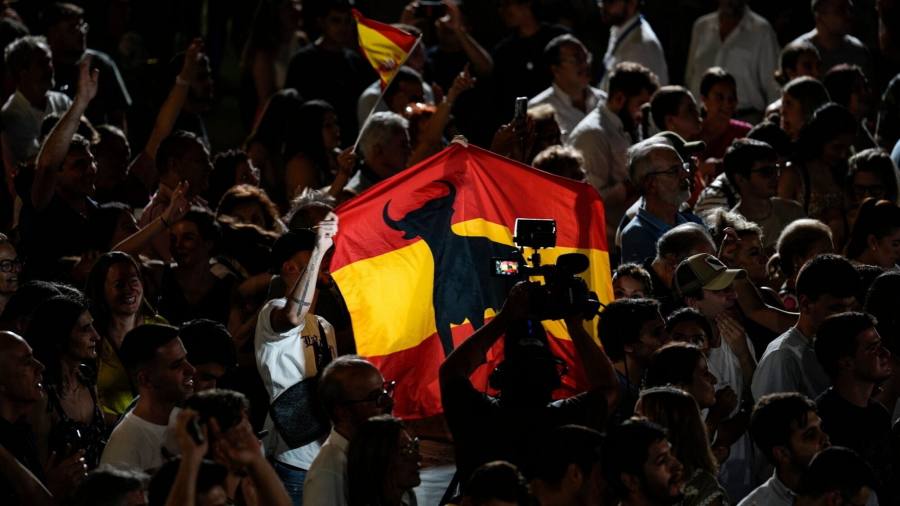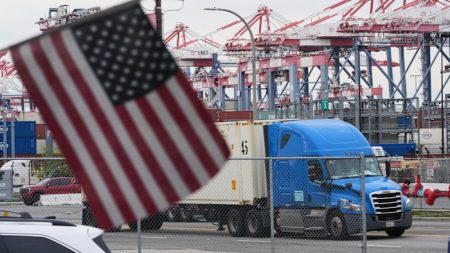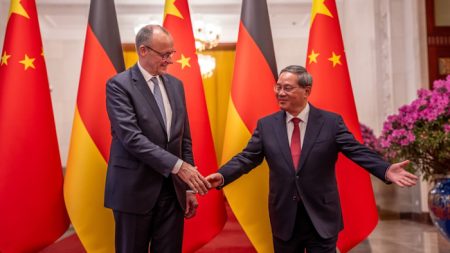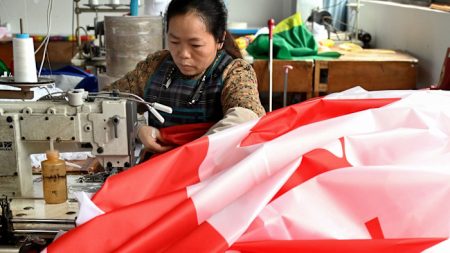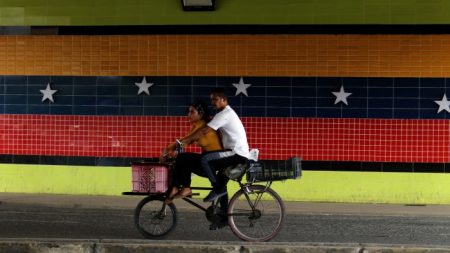Receive free Spanish politics updates
We’ll send you a myFT Daily Digest email rounding up the latest Spanish politics news every morning.
Prime Minister Pedro Sanchez’s warnings that conservatives and hard-right nationalists would drag Spain backwards were far from original in the lexicon of political campaigns.
But in the weeks leading up to Sunday’s vote, the conservative opposition People’s party and the radicals of Vox provided real-life examples in local government of how they would handle coalitions. And a critical number of voters did not like what they saw.
As a result, the PP did not gain as many seats in parliament as expected, and Vox lost one-third of its share, leaving the rightwing bloc without a majority to form a government. Sánchez and his party’s ally Sumar also fell short, leaving Spain in a stalemate.
But the prime minister claimed one achievement: he had halted the march of the hard-right across Europe. “The reactionary bloc, which proposed a total repeal of all the advances we made over the past four years, has failed,” he told cheering supporters.
This is a far cry from May, when Alberto Núñez Feijóo’s PP inflicted such a humiliating defeat on Sánchez in municipal and regional elections that he decided to gamble on calling a snap general election. The PP had hoped to surf the same wave to victory in the July poll, which coincided with seasonal beach holidays.
But it ran into difficulties in its co-operation with Vox, a party hostile to green energy, multiculturalism and feminism. Because the PP fell short of legislative majorities in May, it needed to ally with Vox in several of Spain’s regions and 140 municipalities to form coalition governments.
The chaotic outcome of these coalitions — which included bans on LGBT+ flags, culture wars over theatre and the closing of bike lanes — had two effects, analysts said.
It turned out to be a great motivator for many voters on the left, including those disillusioned with Sánchez’s fractious coalition government who would have otherwise stayed at home or supported the PP. It also dulled the enthusiasm of some centre-right PP voters who already had misgivings about Vox.
As a consequence, with no grouping holding a majority in the 350-seat congress, Spain faces weeks of messy bargaining with smaller parties — or repeat elections.
While Feijóo is renowned as an understated but highly competent manager, one of his big errors was failing to set limits for any pacts with Vox on a path to the premiership, said José Ignacio Torreblanca, head of the Madrid office of the European Council on Foreign Relations. “Then to make things worse, his erratic decisions ended up mining the road,” he said.
The PP rushed into a rapid coalition deal with Vox in the Valencia region, where one hard-right official claimed that “violence against women doesn’t exist” and Feijóo was forced to veto a role for Vox’s regional leader because he had been convicted of “psychological violence” against his ex-wife.
In the Balearic Islands, the two parties agreed on a 110-point programme on the condition that Vox abstained from an investiture vote so the PP could govern alone. In Extremadura in western Spain, the regional PP leader refused to consider any deal with Vox, only to reverse her position and form a coalition that gave the ultraconservatives control of rural affairs, including hunting and bullfighting.
“Perhaps it was in Extremadura where Feijóo lost the credibility to convince undecided Socialist voters and potential abstainers that he would have the vision and authority to distance himself from Vox,” Torreblanca added.
For Sánchez, whose upbeat message about the economy did not resonate with voters, the decisions of PP-Vox regional governments to eliminate environment and equality departments helped underscore the prime minister’s warnings that a rightwing national alliance would “take us into a dark time warp”.
José Pablo Ferrándiz, a director at pollster Ipsos, pointed to other PP campaign errors, including Feijóo’s refusal to attend a second televised debate with Sánchez, where the prime minister jousted with Vox leader Santiago Abascal.
“Feijóo’s absence in the debate meant that the visible face of the expected conservative coalition was Vox, the extreme right,” he said. “That demobilised an important part of the centre-right electorate and took its toll on the People’s party.”
The PP’s 136-seat result was a big improvement on the 89 it received in 2019, but short of what it wanted.
Vox’s breakthrough in the last election had scotched the idea that Spain was immune to the rise of the hard-right by Francisco Franco’s dictatorship. But after it lost one-third of its seats on Sunday, Sánchez has shown that for now, it can only get so far.
Read the full article here





